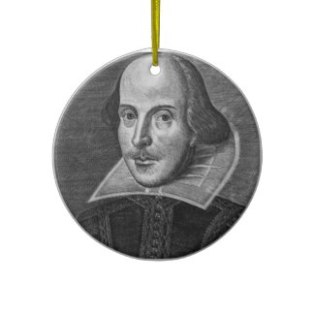It is curious to discover that there are only two mentions to the word Christmas in Shakespeare’s works. Among other experts, Warren King has deepened on the issue. Warren King has taught English literature for the past 35 years in a number of English schools. During the 1980s he was seconded to the national Shakespeare and Schools Project, where he worked to develop methods of teaching Shakespeare in the classroom that bring plays to life for students of all ages. Warren subsequently worked as a Shakespeare consultant at the London Education Authority, where his focus was working with teachers to make Shakespeare lively, comprehensible and enjoyable for their students.
The explanation King has found for our question has merely been a chronological one. It seems that the start of the Christmas time as we know it today in the Western Societies, happened in 1840. Thus, it seems straightforward to assure that Shakespeare did not even live these celebrations. Nevertheless, he did mention the word some times along his ouvres:
Some say that ever ‘gainst that season comes
Wherein our Saviour’s birth is celebrated,
The bird of dawning singeth all night long:
And then, they say, no spirit dare stir abroad;
The nights are wholesome; then no planets strike,
No fairy takes, nor witch hath power to charm,
So hallowed and so gracious is the time (Hamlet; Christmas’ description. Quoted by Warren King)
Together with that, Christmas time, althought being widely known as Christ’s birth and reborn does not have a clear definition in the Holy Bible. It is only referred to, as the period when winter ends up and nature reborns -this way, it is licit to ensure that we have chosen an inappropiate date for this celebration as December does not fit that definition.
Over the times, however, Christmas was considered to be a twelve days’ festival that was set the 26 of December -known as St. Stephen’s Day in the Irish Western Church. This is why Shakespeare’s play Twelfth Night can directly be linked to this tradition. Still, although the name he gave to this play does not leave any questioning to its origin, the script does not actually have any reference to Christmas’ celebration itself. In Spanish, the same play named instead El sueño de Una Noche de Verano, more clearly shows how the conection with Christmas’s time is inexistent. So it seems that the only reference to our celebration might have been the period when the Bard wrote this play for Queen Elizabeth. Which, in fact, was December -altough not beign a precise data it is supported by pseudo-historical films such as the already mentioned in this blob, Shakespeare in Love.
So one question is still open. Did the Bard pay no attention to Christmas because he was really not interested in them? Or, was it because he actually did not get to know them? Or, what is more, was he intended to demonstrate the inventive nature of the celebration stressing the reference to the Holy Bible as the only valid one?
In any case, it seems that once again, the Bard dares us to reflect on a subject that nowadays is getting more connected to economic values than to the human values Christ’s birth was at first intended to promote.
References
-KING, Warren. Shakespeare and Christmas. Updated on December 24 2011. Retrieved from http://www.nosweatshakespeare.com/blog/shakespeare-and-christmas/
-BROWN, Henry. Shakespeare’s patrons & other essays. London: J. M. Dent & sons, 1912. “Shakespeare Online”, August 20, 2009. Retrieved from http://www.shakespeare-online.com/biography/patronelizabeth.html
Archivado en: Big entries, Curiosities, Shakespeare Master Works Today Tagged: Christmas, Twelfth Night, William Shakespeare
![]()
